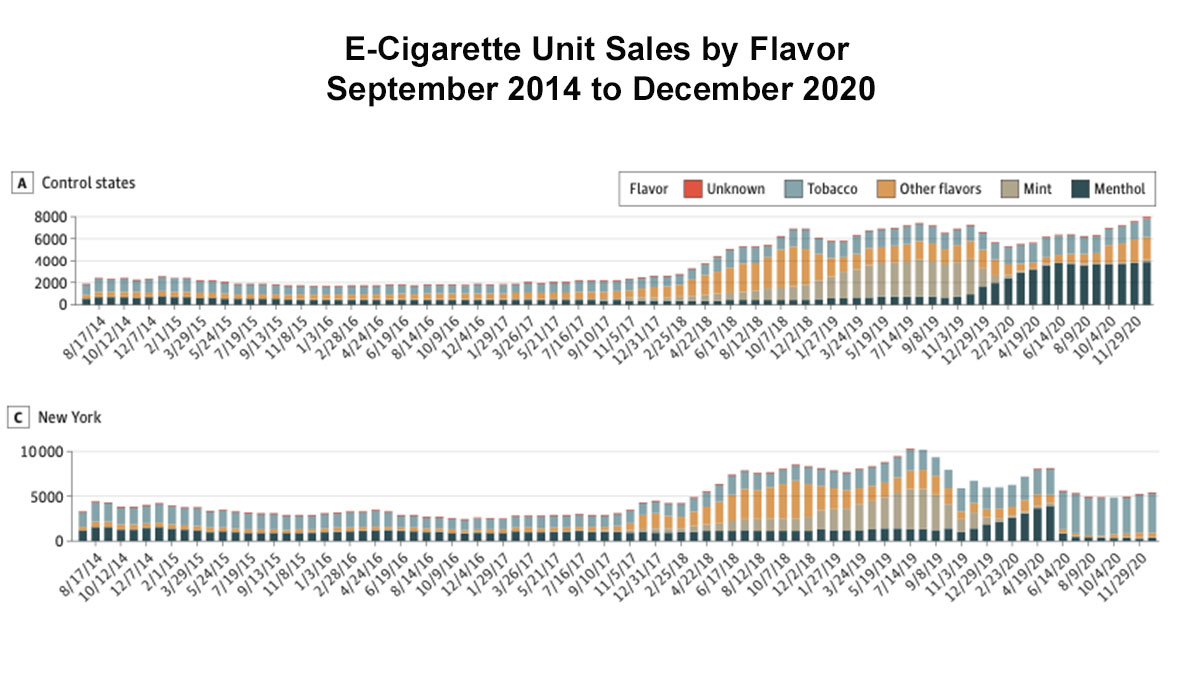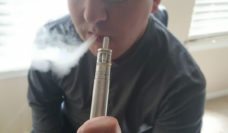More than 2 million high school and middle school students vape, and three quarters of them report that they would stop vaping if e-cigarettes were not flavored. After an outbreak of lung injuries associated with vaping, four states issued regulations restricting the sale of flavored e-cigarettes. Massachusetts, Rhode Island, and Washington implemented restrictions in October of 2019 and New York in May of 2020.
Fatma Romeh and colleagues analyzed cigarette sales data from 2014 to 2020 to evaluate the impact of statewide restrictions on flavored e-cigarette purchases. They compared e-cigarette sales from the four states restricting access to those with no restrictions. E-cigarette flavors were sorted into four categories: tobacco (non-flavored), menthol, mint, and “other,” which included fruits, chocolate, cocktails, and candy.
The top graph shows e-cigarette sales in states that did not implement any restrictions on sales of flavored e-cigarette products. The second graph shows e-cigarettes sales in New York before and after flavor restrictions were implemented in May of 2020. New York saw a decrease of 46% in overall sales as well as a decrease in flavored e-cigarettes sales. In contrast, in states without restrictions, sales decreased 28% in February 2020, but then increased again by 49% through December of 2020.
This study shows that restricting sales of flavored e-cigarette products reduces overall e-cigarette sales. Although this study does not specifically focus on products purchased by teenagers, other studies have shown that flavored products lure teenagers into vaping and contribute to continued vaping. Implementing restrictions on flavored e-cigarette products may result in less overall vaping, and in fewer high school and middle school students vaping.
Databyte via Fatma Romeh M. Ali, Donna Vallone, Elizabeth L. Seaman, et al. Evaluation of Statewide Restrictions on Flavored e-Cigarette Sales in the US From 2014 to 2020. JAMA Network Open, 2022.














